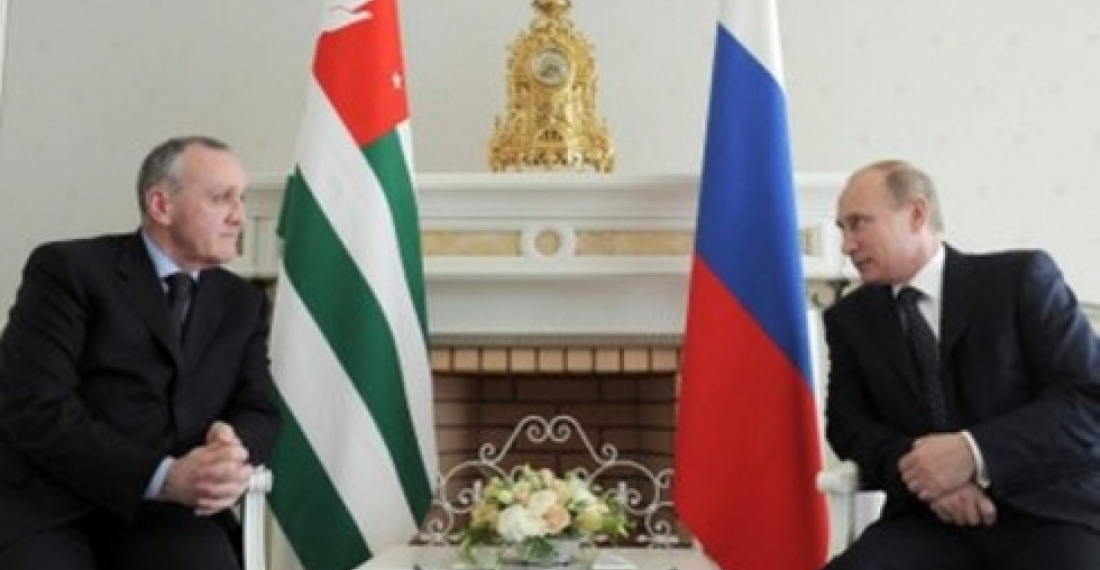Russian President Vladimir Putin promised Abkhazia help in the economic and social spheres when he met the Abkhaz leader Alexander Ankvab near Sochi yesterday
Putin said that "much has been done over the previous years for establishing Abkhazia as an independent state, but much more is still to be done". Touching on the visit to a border crossing between Russia and Abkhazia that the two leaders paid earlier in the day, Putin noted that everything should be done so that "people feel comfortable, are able to socialise, relax and do business".
For his part, Ankvab congratulated Putin on his inauguration as Russian president. "I cannot fail to congratulate you not just on my behalf, but on behalf of your voters in Abkhazia," Ankvab said. "Today, Abkhazia is not what it used to be six or seven years ago. With Russia's help, we are developing progressively, which is of great significance to our country," he said. Ankvab went on to say that people in Abkhazia "are in a positive mood because they feel Russia's support".
The meeting was Putin's first encounter with a foreign leader since he was sworn in as President of Russia on Monday.
source: commonspace.eu with Interfax
photo: Vladimir Putin with the Abkhaz leader, Alexander Ankvab in Sochi on 11 May 2012. (picture courtesy of the Press Service of the President of Russia).







